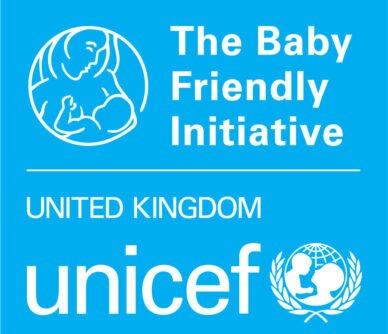31 July 2018
Unicef and WHO’s new report, Capture the Moment, estimates that 78 million babies – or three in five – are not breastfed within the first hour, putting them at higher risk of disease and making them less likely to continue breastfeeding.
The report notes that newborns who breastfeed in the first hour of life are significantly more likely to survive. Even a delay of a few hours after birth could pose life-threatening consequences. Skin-to-skin contact along with suckling at the breast stimulate the production of breastmilk, including colostrum, also called the baby’s ‘first vaccine’, which is extremely rich in nutrients and antibodies.
“When it comes to the start of breastfeeding, timing is everything. In many countries, it can even be a matter of life or death,” says Henrietta H. Fore, Unicef Executive Director. “Yet each year, millions of newborns miss out on the benefits of early breastfeeding and the reason – all too often – is mostly preventable. Mothers simply don’t receive enough support to breastfeed within those crucial minutes, even from medical personnel at health facilities.”
Breastfeeding rates within the first hour after birth are highest in Eastern and Southern Africa (65%) and lowest in East Asia and the Pacific (32%), the report says. Nearly nine in 10 babies born in Burundi, Sri Lanka and Vanuatu are breastfed within the first hour. By contrast, only two in 10 babies born in Azerbaijan, Chad and Montenegro do so.
“Breastfeeding gives children the best possible start in life,” says Dr Tedros Adhanom Ghebreyesus, WHO Director-General. “We must urgently scale up support to mothers – be it from family members, health care workers, employers and governments, so they can give their children the start they deserve.”
The UK picture
The report highlights that in high income countries, 21 per cent of children are never breastfed, compared with only 4 per cent of children in low and middle income countries. In the UK we have some of the lowest breastfeeding rates in the world; the last UK-wide Infant Feeding Survey was conducted in 2010, and it found that whilst 81 per cent of mothers initiated breastfeeding, only 34 per cent of babies were receiving any form of breastmilk at six months.
There are huge regional and cultural variations; in some areas of the South of England over 90% of babies receive breastmilk, whereas in some areas of the North East of England only 35% of mothers initiate breastfeeding, meaning that 65% per cent of children in those areas are missing out completely on the health and wellbeing benefits of breastmilk and breastfeeding.
Why is breastfeeding delayed?
Capture the Moment, which analyzes data from 76 countries, finds that despite the importance of early initiation of breastfeeding, too many newborns wait too long for different reasons:
- Feeding newborns food or drinks, including formula: Common practices, such as discarding colostrum, an elder feeding the baby honey or health professionals giving the newborn a specific liquid, such as sugar water or infant formula, delay a newborn’s first critical contact with his or her mother.
- The rise in elective C-sections: A study across 51 countries notes that early initiation rates are significantly lower among newborns delivered by caesarean section. In Honduras, for example, only 12% of babies born by C-section started breastfeeding in the first hour, compared to 77% of babies who were born naturally.
- Gaps in the quality of care provided to mothers and newborns: The presence of a skilled birth attendant does not seem to affect rates of early breastfeeding, according to the report. Across 58 countries between 2005 and 2017, deliveries at health institutions grew by 18%, while early initiation rates increased only by 6%. In many cases, babies are separated from their mothers immediately after birth and guidance from health workers is In Serbia, the rates increased by 43% from 2010 to 2014 largely due to efforts to improve the care mothers received at birth.
The report calls for a range of measures to tackle these issues:
- Increased funding for breastfeeding protection and support
- Full implementation of the International Code of Marketing of Breastmilk Substitutes and subsequent resolutions
- Increased prioritisation of skin-to-skin contact in health services
- Improved breastfeeding support particularly for mothers who deliver by C-section
- Stronger links between health services and communities to support breastfeeding
- Monitoring processes to track the progress of breastfeeding policies and programmes.
The WHO and Unicef-led Global Breastfeeding Collective also released the 2018 Global Breastfeeding Scorecard, which tracks progress for breastfeeding policies and programmes. In it, they encourage countries to advance policies and programmes that help all mothers to start breastfeeding in the first hour of their child’s life and to continue as long as they want.



